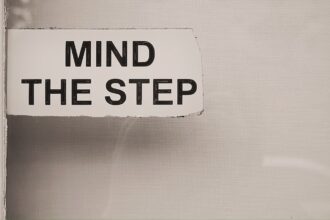As you navigate through life, you may find that asking for help often comes with an unspoken stigma. Society has ingrained in many of us the belief that self-sufficiency is a virtue, and that needing assistance is a sign of weakness. This perception can create a barrier, making it difficult for you to reach out when you truly need support.
The fear of being labeled as incapable or dependent can weigh heavily on your mind, leading to feelings of isolation and frustration. You might feel as though you are expected to handle everything on your own, which can be an overwhelming burden. Moreover, this stigma can manifest in various ways, from subtle societal cues to overt messages in media and culture.
You may notice that stories of triumph often highlight individuals who have overcome adversity without any help, reinforcing the idea that asking for assistance is somehow less admirable. This narrative can make it challenging for you to acknowledge your own needs and seek the support that could make a significant difference in your life. Understanding this stigma is the first step toward dismantling it, allowing you to embrace the idea that seeking help is not only acceptable but also a vital part of the human experience.
Key Takeaways
- Asking for help is often stigmatized, but it is important to recognize that it is a sign of strength, not weakness.
- The fear of being judged can prevent people from seeking assistance, but it is important to remember that everyone needs help at some point in their lives.
- Balancing independence and dependence is crucial for maintaining a healthy and fulfilling life, and asking for help when needed is a part of that balance.
- The pressure to handle everything alone can be overwhelming, but it is important to overcome the ego and recognize the benefits of seeking assistance.
- Recognizing the benefits of seeking assistance can lead to personal growth and a stronger support system, ultimately improving overall well-being.
The Fear of Being Judged
When contemplating whether to ask for help, the fear of being judged can loom large in your mind. You might worry about how others will perceive your request, fearing that they will see you as incompetent or incapable. This anxiety can be paralyzing, preventing you from reaching out even when you know that assistance could alleviate your struggles.
The thought of being scrutinized or misunderstood can create a mental barrier that feels insurmountable. This fear is often rooted in past experiences or societal conditioning. You may have encountered situations where vulnerability was met with criticism or dismissal, leading you to internalize the belief that asking for help is a risk not worth taking.
However, it’s essential to recognize that most people are more empathetic than we give them credit for. By confronting this fear and understanding that judgment is often a reflection of others’ insecurities rather than your own worth, you can begin to shift your perspective and open yourself up to the possibility of support.
Balancing Independence and Dependence
Striking a balance between independence and dependence is a delicate dance that many people grapple with throughout their lives. You may pride yourself on your ability to handle challenges on your own, viewing independence as a hallmark of strength. However, this mindset can sometimes lead to an unhealthy aversion to seeking help when it’s needed.
It’s crucial to understand that independence does not equate to isolation; rather, it can coexist with interdependence. Recognizing that everyone needs help at times can be liberating. You might find that leaning on others does not diminish your strength but rather enhances it.
By allowing yourself to depend on others when necessary, you create opportunities for collaboration and connection. This balance fosters a sense of community and shared experience, reminding you that asking for help is not a sign of weakness but an acknowledgment of our shared humanity.
The Pressure to Handle Everything Alone
| Pressure Factors | Impact |
|---|---|
| Workload | High |
| Responsibility | Overwhelming |
| Stress | Intense |
| Isolation | Loneliness |
In today’s fast-paced world, there is often an unspoken pressure to manage everything independently. You may feel as though you must juggle work, family responsibilities, and personal challenges without any external support. This expectation can lead to burnout and stress, as you strive to meet unrealistic standards set by yourself or society.
The weight of this pressure can be overwhelming, leaving you feeling exhausted and isolated. It’s important to recognize that no one can do it all alone. The belief that you must handle everything by yourself can lead to feelings of inadequacy when you inevitably struggle.
By acknowledging this pressure and its impact on your well-being, you can begin to challenge the notion that self-reliance is the only path to success. Embracing the idea that it’s okay to ask for help can relieve some of the burdens you carry and allow you to focus on what truly matters in your life.
Overcoming the Ego
Your ego can often be a formidable barrier when it comes to seeking help. It may whisper in your ear that asking for assistance is a sign of failure or inadequacy, leading you to resist reaching out even when you know it would benefit you. This internal struggle can create a cycle of pride and isolation, where your desire to maintain a certain image prevents you from accessing the support you need.
Overcoming this ego-driven mindset requires self-reflection and humility. You might find it helpful to remind yourself that everyone has limitations and that seeking help is a natural part of life. By letting go of the need to appear strong or self-sufficient at all times, you open yourself up to new possibilities and connections.
Recognizing the Benefits of Seeking Assistance
When you finally decide to seek help, the benefits can be profound and far-reaching. You may discover that sharing your burdens with others not only lightens your load but also fosters deeper connections with those around you. By opening up about your struggles, you create opportunities for empathy and understanding, allowing others to share their experiences as well.
This exchange can lead to a sense of community and belonging that enriches your life. Additionally, seeking assistance can provide you with new perspectives and solutions that you may not have considered on your own. Collaborating with others allows for brainstorming and problem-solving in ways that solitary efforts cannot achieve.
You might find that asking for help leads to personal growth and resilience, as it encourages you to confront challenges head-on rather than avoiding them out of fear or pride.
Finding the Right Support System
Identifying the right support system is crucial when it comes to seeking help effectively. You may want to surround yourself with individuals who are not only willing to lend a hand but also understand your needs and values. This could include friends, family members, mentors, or even professional counselors who can provide guidance and encouragement during difficult times.
As you seek out this support network, consider what qualities are most important to you in those relationships. Trustworthiness, empathy, and open communication are essential traits that can foster a safe environment for sharing your struggles. By investing time in building these connections, you create a solid foundation upon which you can rely when challenges arise.
Overcoming the Fear of Rejection
The fear of rejection can be a significant deterrent when considering whether to ask for help. You might worry about how others will respond or whether they will be willing or able to assist you in your time of need. This apprehension can lead to hesitation and self-doubt, making it even more challenging to reach out for support.
However, it’s essential to remember that rejection is a natural part of life and does not define your worth or value as a person. By reframing your perspective on rejection, you can view it as an opportunity for growth rather than a setback. Each experience teaches you something valuable about yourself and your relationships with others.
Embracing this mindset allows you to approach requests for help with greater confidence and resilience.
The Importance of Vulnerability
Vulnerability is often seen as a weakness in our society, but in reality, it is one of the most powerful tools for connection and growth. When you allow yourself to be vulnerable by sharing your struggles and asking for help, you invite others into your experience in a meaningful way. This openness fosters trust and intimacy in relationships, creating bonds that are built on authenticity rather than superficiality.
Embracing vulnerability also allows you to confront your fears head-on. By acknowledging your struggles and seeking assistance, you demonstrate courage and strength in facing challenges rather than hiding from them. This shift in perspective can lead to personal growth and resilience as you learn to navigate life’s ups and downs with greater ease.
When considering where to seek help, it’s essential to weigh the benefits of professional assistance against the support offered by friends and family. Professional help, such as therapy or counseling, provides access to trained individuals who can offer objective insights and coping strategies tailored to your specific needs. This type of support can be invaluable when dealing with complex emotional issues or mental health challenges.
On the other hand, friends and family often provide emotional support rooted in shared experiences and understanding. They may offer comfort and encouragement during difficult times while also providing practical assistance when needed. Ultimately, the choice between professional help and personal connections depends on your unique situation and preferences.
Recognizing the value in both avenues allows you to create a comprehensive support system that addresses various aspects of your life.
Embracing the Strength in Asking for Help
Asking for help is not a sign of weakness; rather, it is an act of courage that demonstrates self-awareness and resilience.
Acknowledging your needs and reaching out for support allows you to cultivate a sense of community and belonging that enriches your life.
In conclusion, understanding the complexities surrounding asking for help is essential for personal growth and well-being. By recognizing the stigma associated with seeking assistance, overcoming fears of judgment and rejection, and embracing vulnerability, you pave the way for meaningful connections with others. Ultimately, asking for help is not just about alleviating burdens; it’s about fostering relationships built on trust, empathy, and shared experiences—an invaluable aspect of the human experience.
In today’s fast-paced world, many individuals struggle with the notion of asking for help, often due to societal pressures or personal insecurities. An insightful article on this topic can be found on Unplugged Psychology’s website, which delves into the psychological barriers that prevent people from seeking assistance. The article explores various factors such as fear of judgment, perceived self-reliance, and the stigma associated with vulnerability. For a deeper understanding of these issues, you can read more about it by visiting this related article. This resource provides valuable perspectives and strategies to overcome the reluctance to ask for help, ultimately fostering a healthier approach to personal and professional challenges.
WATCH THIS! Hyper-Independence Is Not Strength
FAQs
What are some reasons why people may struggle to ask for help?
Some people may struggle to ask for help due to fear of appearing weak or incompetent, concerns about burdening others, a desire to maintain independence, or a lack of trust in others.
How can the inability to ask for help impact a person’s well-being?
The inability to ask for help can lead to increased stress, feelings of isolation, and a sense of being overwhelmed. It can also hinder personal and professional growth and lead to burnout.
What are some strategies for overcoming the difficulty of asking for help?
Some strategies for overcoming the difficulty of asking for help include reframing the way one thinks about asking for help, building a support network, practicing assertiveness, and seeking professional guidance if needed.
What are the potential benefits of asking for help when needed?
Asking for help when needed can lead to increased productivity, improved relationships, reduced stress, and a greater sense of community and connection. It can also foster personal growth and development.




